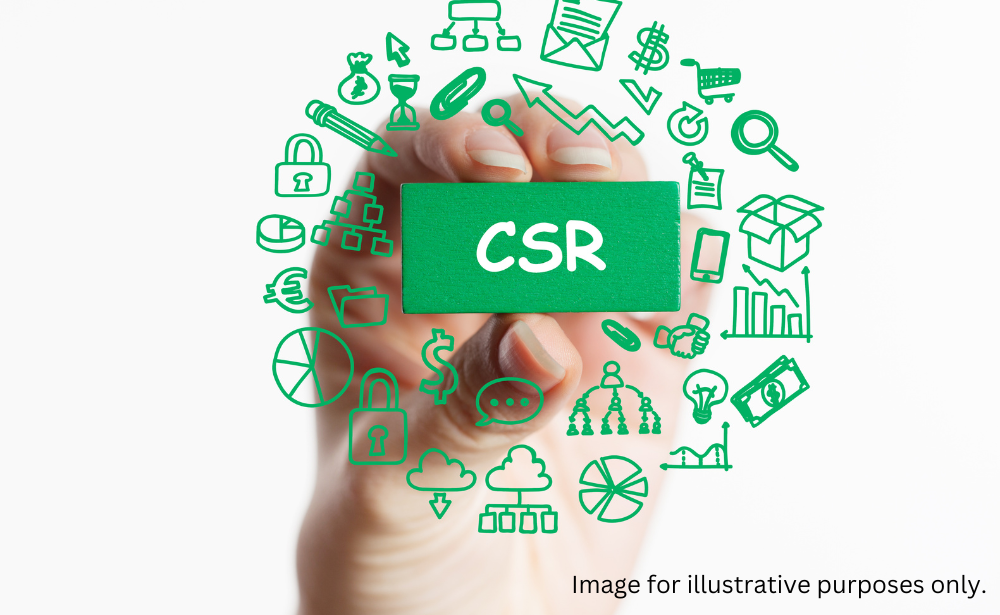Corporate Social Responsibility (CSR) has become a fundamental aspect of modern business strategy, influencing not only corporate image but also customer engagement and loyalty. While many studies have examined the relationship between CSR and business outcomes, the specific mechanisms through which CSR impacts customer patronage remain underexplored. In a recent study by Ruijie Shu, Hua Xia of SEGi University, and Oberiri Destiny Apuke, the researchers developed a model to analyze how CSR affects customer patronage (CP) in manufacturing companies, focusing on the mediating role of corporate reputation (CR) and the moderating effect of customer awareness (CA) of CSR initiatives.
The Link Between CSR and Corporate Reputation
The study, based on data from 1,200 customers of a manufacturing company, utilized Structural Equation Modeling (SEM) to investigate the relationship between CSR activities, corporate reputation, and customer patronage. The findings highlight that CSR initiatives significantly enhance corporate reputation, particularly in the areas of community development and philanthropic contributions. Companies that actively engage in CSR efforts, such as environmental sustainability, social welfare programs, and ethical business practices, cultivate a stronger and more favorable reputation among consumers.
Corporate Reputation as a Mediator
One of the key contributions of this study is the confirmation that corporate reputation serves as a mediating factor between CSR activities and customer patronage. When a company is perceived as socially responsible, customers are more likely to develop trust and a sense of loyalty toward the brand. This trust, in turn, translates into increased customer retention, positive word-of-mouth, and higher sales. The research underscores that CSR does not directly influence customer patronage in isolation; rather, it enhances corporate reputation, which subsequently strengthens customer loyalty and business performance.
The Moderating Effect of Customer Awareness
The study further explored the moderating role of customer awareness of CSR activities. It was found that customers who are well-informed about a company’s CSR efforts exhibit stronger correlations between corporate reputation and patronage. In other words, businesses that actively communicate their CSR initiatives and engage in transparent reporting practices can maximize the positive effects of CSR on customer behavior. This suggests that simply implementing CSR programs is insufficient—companies must also ensure that customers are aware of these efforts through strategic marketing, social media engagement, and corporate communications.
Implications for Business Strategy
The findings of this study offer valuable insights for businesses looking to leverage CSR for improved customer engagement and competitive advantage.
- Prioritizing Community and Philanthropy: Companies should focus on CSR activities that directly benefit communities, as these efforts have the strongest impact on corporate reputation.
- Building and Maintaining Corporate Reputation: Businesses must integrate CSR into their long-term corporate strategy to foster a positive brand image and customer trust.
- Enhancing Consumer Awareness: Effective communication of CSR initiatives through digital platforms, corporate reports, and public relations efforts is crucial in strengthening the link between corporate reputation and customer loyalty.
By aligning CSR strategies with customer expectations and ensuring transparency, manufacturing companies can achieve sustainable growth while fostering positive societal impact.
This research is in line with the United Nations Sustainable Development Goals (SDGs), particularly:
- SDG 8: Decent Work and Economic Growth – Encouraging responsible business practices that contribute to economic development and fair labor conditions.
- SDG 9: Industry, Innovation, and Infrastructure – Promoting sustainable industrial growth through ethical corporate strategies.
- SDG 12: Responsible Consumption and Production – Advocating for corporate responsibility in environmental and social initiatives.
Read the full research paper here: https://journals.sagepub.com/doi/10.1177/21582440241305320

